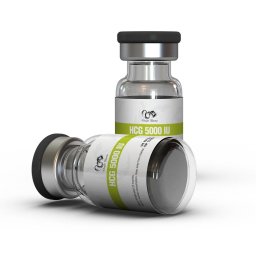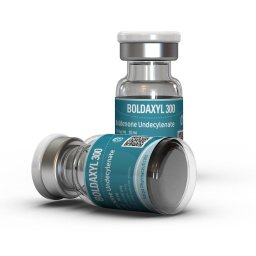
MADE BY: Kalpa Pharmaceuticals
AMOUNT: 10 ml vial
DRUG CLASS: Anabolic Steroid (for intramuscular injection)
ACTIVE LIFE: 15 days
AVERAGE DOSE: Men 200-600 mg/week, Women 50-100 mg/week
LIVER TOXICITY: None
AROMATIZATION RATE: Low
DHT CONVERSION: Low
DECREASE HPTA FUNCTION: Moderate
ANABOLIC/ ANDROGENIC RATE: 100:50
ACTIVE SUBSTANCE: Boldenone Undecylenate 300mg/ml
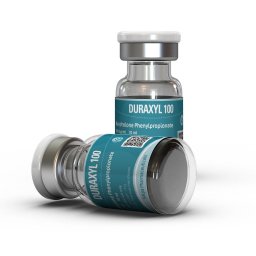
MADE BY: Kalpa Pharmaceuticals
AMOUNT: 10 ml vial
DRUG CLASS: Anabolic Steroid (for intramuscular injection)
ACTIVE LIFE: 5 days
AVERAGE DOSE: Men 300-600mg/week, Women 50-100mgs/week
LIVER TOXICITY: None
AROMATIZATION RATE:<20%
DHT CONVERSION: None
DECREASE HPTA FUNCTION: Moderate
ANABOLIC/ ANDROGENIC RATE: 125:37
ACTIVE SUBSTANCE: Nandrolone Phenylpropionate 100mg/ml
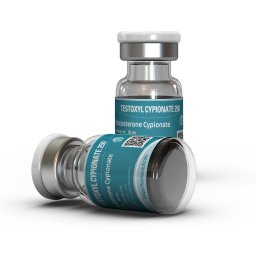
MADE BY: Kalpa Pharmaceuticals
AMOUNT: 10 ml vial
DRUG CLASS: Anabolic Steroid (for intramuscular injection)
ACTIVE LIFE: 15-16 days
AVERAGE DOSE: Men 400-1200 mg/week
LIVER TOXICITY: Low
AROMATIZATION RATE: High
DHT CONVERSION: High
DECREASE HPTA FUNCTION: Severe
ANABOLIC/ ANDROGENIC RATE: 100:100
ACTIVE SUBSTANCE: Testosterone Cypionate 250mg/ml
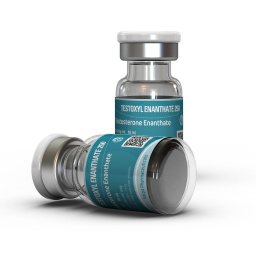
MADE BY: Kalpa Pharmaceuticals
AMOUNT: 10 ml vial
DRUG CLASS: Anabolic Steroid (for intramuscular injection)
ACTIVE LIFE: 15-16 days
AVERAGE DOSE: Men 300-1250 mg/week
LIVER TOXICITY: Low
AROMATIZATION RATE: High
DHT CONVERSION: High
DECREASE HPTA FUNCTION: Severe
ANABOLIC/ ANDROGENIC RATE: 100:100
ACTIVE SUBSTANCE: Testosterone Enanthate 250mg/ml
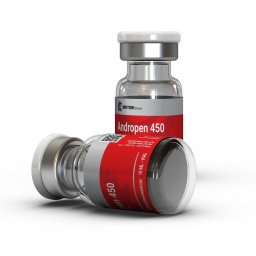
MADE BY: British Dragon Pharma
AMOUNT: 10 ml vial
ACTIVE SUBSTANCE:
- 147 mg Testosterone Decanoate
- 32 mg Testosterone Acetate
- 73 mg Testosterone Phenylpropionat
- 73 mg Testosterone Propionate
- 125 mg Testosterone Cypionate
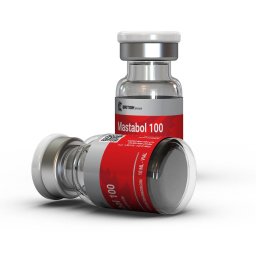
MADE BY: British Dragon Pharma
AMOUNT: 10 ml vial
DRUG CLASS: Anabolic Steroid (for intramuscular injection)
ACTIVE LIFE: 3 days
AVERAGE DOSE: Men 300-600 mg/week, Women 100-300 mg/week
LIVER TOXICITY: Low
AROMATIZATION RATE: None
DHT CONVERSION: None
DECREASE HPTA FUNCTION: Yes
ANABOLIC/ ANDROGENIC RATE: 62:25
ACTIVE SUBSTANCE: Drostanolone Propionate 100mg/ml
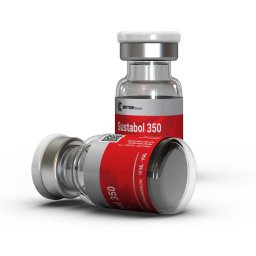
MADE BY: British Dragon Pharma
AMOUNT: 10 ml vial
DRUG CLASS: Anabolic Steroid (for intramuscular injection)
ACTIVE LIFE: 15-20 days
AVERAGE DOSE: Men 400-1200 mg/week
LIVER TOXICITY: Low
AROMATIZATION RATE: High
DHT CONVERSION: high
DECREASE HPTA FUNCTION: Severe
ANABOLIC/ ANDROGENIC RATE: 100:100
ACTIVE SUBSTANCE:
- Testosterone Decanoate
- Testosterone Phaenylpropionate
- Testosterone Propionate
- Testosterone Isocarpoate
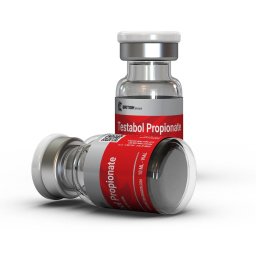
MADE BY: British Dragon Pharma
AMOUNT: 10 ml vial
DRUG CLASS: Anabolic Steroid (for intramuscular injection)
ACTIVE LIFE: 2-3 days
AVERAGE DOSE: Men 350-1200 mg/week
LIVER TOXICITY: Low
AROMATIZATION RATE: High
DHT CONVERSION: High
DECREASE HPTA FUNCTION: Severe
ANABOLIC/ ANDROGENIC RATE: 100:100
ACTIVE SUBSTANCE: Testosterone Propionate 100mg/ml

MADE BY: Dragon Pharma
AMOUNT: 100 tabs
DRUG CLASS: Oral Anabolic Androgenic Steroid
ACTIVE LIFE: 8-12 hours
AVERAGE DOSE: Men 20-100 mg/day, Women 2.5-10 mg/day
LIVER TOXICITY: Low
AROMATIZATION RATE: None
DHT CONVERSION: Low
DECREASE HPTA FUNCTION: Dose-dependent
ANABOLIC/ ANDROGENIC RATE: 322-630:24
ACTIVE SUBSTANCE: Oxandrolone 10mg/tab

MADE BY: Dragon Pharma
AMOUNT: 100 tabs
DRUG CLASS: Oral Anabolic Androgenic Steroid
ACTIVE LIFE: 6-8hours
AVERAGE DOSE: 25-100 mg/day
LIVER TOXICITY: High
AROMATIZATION RATE: High
DHT CONVERSION: None
DECREASE HPTA FUNCTION: Yes
ANABOLIC/ ANDROGENIC RATE: 90-210 : 40-60
ACTIVE SUBSTANCE: Methandienone 20mg/tab
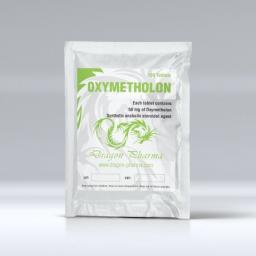
MADE BY: Dragon Pharma
AMOUNT: 100 tabs
DRUG CLASS: Oral Androgenic Anabolic Steroid
ACTIVE LIFE: 12-16 hours
AVERAGE DOSE: Men 50-150 mg/day
LIVER TOXICITY: Very High
AROMATIZATION RATE: None
DHT CONVERSION: DHT derivative
DECREASE HPTA FUNCTION: Very High
ANABOLIC/ ANDROGENIC RATE: 320 : 45
ACTIVE SUBSTANCE: Oxymetholone 50mg/tab

MADE BY: Dragon Pharma
AMOUNT: 100 tabs
DRUG CLASS: Oral Androgenic Anabolic Steroid
ACTIVE LIFE: 8 hours
AVERAGE DOSE: Men 40-100 mg/day, Women 2.5-10 mg/day
LIVER TOXICITY: High
AROMATIZATION RATE: None
DHT CONVERSION: None
DECREASE HPTA FUNCTION: Low
ANABOLIC/ ANDROGENIC RATE: 320 : 30
ACTIVE SUBSTANCE: Stanozolol 50mg/tab
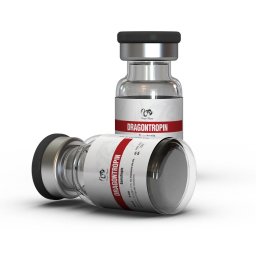
MADE BY: Dragon Pharma
AMOUNT: 1 kit (10 vials) 10IU
DRUG CLASS: Growth Hormone Analog
ACTIVE LIFE: 2-3 days
AVERAGE DOSE: Men: 4-10 iu/day
LIVER TOXICITY: no
AROMATIZATION RATE: no
ACTIVE SUBSTANCE: Somatropin (R-HGH)
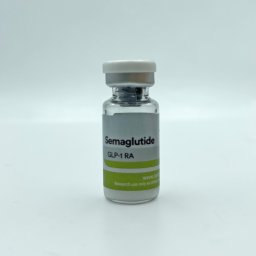
MADE BY: Beligas
AMOUNT: 2ml vial
DRUG CLASS:
ACTIVE LIFE:
AVERAGE DOSE:
ACTIVE SUBSTANCE: GLP-1 RA
BUY STEROIDS ONLINE | THE ANABOLIC STORE
Anabolic steroids are widely known to be illegal in most countries, making it quite a hassle to acquire them if you reside in a nation that doesn't permit their possession or use. For instance, in the USA, obtaining AAS for performance and physique enhancement purposes from local pharmacies without a prescription is impossible.
This is believed to be a strategy to maximize prescription revenues and maintain absolute control over the price of steroids. However, you can conveniently purchase steroids online sources, such as our website, without needing a prescription and at a lower cost.
This way, you save twice - on the prescription and the steroid itself. Rest assured, we exclusively provide genuine anabolics sourced from reliable manufacturers who produce the finest oral and injectable steroids.
Regardless of the legality in your country, purchasing online is always a smart choice for all the reasons mentioned earlier.
BUY ANABOLIC STEROIDS ONLINE LEGITIMATELY
People should know that when it comes to purchasing steroids online, there are a few guidelines that can be helpful. While these suggestions are not set rules, they can certainly assist those who are wondering how to avoid scams and successfully buy steroids online.
Always opt for manufacturers who have a visible online presence, such as a website.
If you're unsure about the product's quality, consider getting a blood test to determine its authenticity.
Prior to making a purchase, reach out to the source's customer support to evaluate their reliability. Unreliable sources may not respond or provide meaningless automated replies.
Should you not receive your products, contact customer support. Reliable sources often offer free reshipments.
Rest assured, you can have 100% trust in our source as we adhere to all of the aforementioned recommendations!
Articles
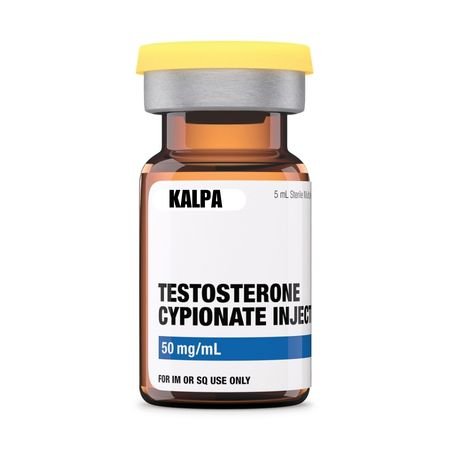
When it comes to purchasing testosterone cypionate, one of the most important factors to consider is the reputation of the seller. Look for online reviews and testimonials from other users to gauge the reliability and quality of the products offered.

Ordering from Dragon Pharma steroids is a relatively simple process, but it's important to make sure you are buying steroids online from an approved supplier.

When looking to purchase Clenbuterol online, you need to look for reputable sources. A quick Google search will provide you with numerous options, but not all of them are trustworthy. Make sure you do your research and read online reviews from previous customers to ensure they offer quality products and reliable customer service.
BEST STEROIDS ONLINE BRANDS
Now that we know what to look for, let's delve into some of the best steroid online brands that are well-regarded in the bodybuilding community. We want to assure you that Buy-Steroids-Online.biz is official supplier of brands below.
DRAGON PHARMA
Dragon Pharma steroids stands out for its stringent quality control measures and wide range of products. The brand provides various options catered to different stages of bodybuilding, from bulking up to cutting fat.
Benefits of Dragon Pharmaceuticals: Products undergo rigorous testing for purity and potency; Tailored options for different goals and cycles; Global reputation for consistency and performance.
KALPA PHARMACEUTICALS
Kalpa Pharmaceuticals is a large pharmaceutical company and is founded in 1994. Kalpa Pharmacy is one of the largest manufacturers of pharmacology in Asia and US.
This company uses the results of scientific research in the pharmaceutical field and offers to consumer only high-quality products, tested drugs for the prevention and treatment of various diseases.
Today, this company produces over 150 types of medicines, including a wide range of anabolic steroids.
BRITISH DRAGON
British Dragon has become synonymous with high-quality steroids and performance enhancers. With a strong legacy, this brand is a go-to for many bodybuilders.
Benefits of British Dragon: A trusted name with extensive user testimonials; Advanced formulas for maximum efficiency; Accessible customer service for queries and guidance.
AXIO LABS (US DOMESTIC SHIPPING)
Committed to innovation, Axio Labs offers best anabolic steroids that promise a balance between results and health consciousness.
Benefits of Axio Labs steroids: Innovative product line utilizing the latest science; Enhanced formulas for a variety of bodybuilding needs; Emphasis on reduced side effects; US domestic express shipping.
STEROIDS FAQ
What is The best anabolic steroids?
Let's start with Trenbolone's incomparable ability to increase muscle mass while simultaneously shredding fat.
This makes it a favorite among bodybuilders looking for that coveted lean and shredded physique. Unlike other popular steroid choices such as Dianabol or Anadrol which are notorious for causing water retention resulting in a bloated appearance. Trenbolone does not aromatize into estrogen at all! In fact, due to its anti-estrogen properties, users have reported experiencing less water retention leading to a more defined look.
Testosterone has always been considered the "father" of all anabolic steroids - after all, our bodies naturally produce this hormone responsible for building muscle mass and enhancing physical performance. So why isn't testosterone sitting at number one on this list? Simply put - because there are better options out there! Testosterone may provide impressive results but comes with high levels of estrogen conversion resulting in side effects such as gynecomastia (man boobs) or water retention leading to bloating.
Another honorable mention goes out to Deca Durabolin. Highly regarded in the bodybuilding community for its ability to increase strength and muscle mass, it falls short when compared to Trenbolone's potency. It also has a much longer detection time in drug tests which can prove problematic for athletes or professionals who are subject to regular testing.
What Are The Most Safest Steroids?
Anavar is considered to be one of the best and safest steroid for human use. While it promotes muscle tissue growth, it is not as effective as other steroids in terms of overall growth. Its mild nature has led to it being referred to as the "girl's steroid."
Other safe steroids include Testosterone and Nandrolone, but these are generally not recommended for women seeking performance or physique enhancement. However, it's important to note that even though they are considered the safest options, they are not without risks. Side effects can still occur with excessively high doses, prolonged usage, or if an individual has a low tolerance.
Is It Safe To Buy Steroids From This Website?
Buying steroids online is actually much safer compared to getting them from the black market. Here at our website, we understand the importance of maintaining a good reputation. Rest assured, we provide genuine, high-quality products at affordable prices with significant discounts. While there are various online platforms to purchase anabolic steroids, lately, people have become cautious due to the prevalence of dangerous sources. Some may sell counterfeits, low-quality products, or even scam you by stealing money and personal information.
However, by purchasing from us, you can be confident that none of the above will ever occur. Our website has thousands of happy customers who trust us because we always deliver on our promises. In the unlikely event that your package is seized at customs, we will reship it free of charge.
Why you should buy steroids online from our store?
All information is 100% confidential;
High quality;
Original products;
The official reseller of Kalpa; Dragon Pharma; Axio Labs and British Dragon;
Safe payment methods;
Fast shipping (domestic express 4-7 days);
Free shipping on order other $1000;
First order with 15% off;
Competitive prices;
Discreet delivery;
No prescription required;
99% you'll receive your order;
What are the best steroids for beginners?
It's wise to consult your doctor first. Ensure your health markers like blood pressure and liver values are normal before starting. Opt for milder steroids initially to minimize side effects. Anavar and testosterone are beginner-friendly options. Anavar boosts energy and reduces body fat, while testosterone aids in fat loss and muscle/strength gain.
What are the best testosterone boosters?
To boost testosterone levels, various testosterone boosters are available, working directly to elevate testosterone levels and potentially prevent conversion to estrogen. Popular options like testosterone cypionate, testosterone enanthate, and testosterone propionate are widely used. Additionally, supplements like Vitamin D are known remedies.
How to buy testosterone cypionate 200mg online?
Many sources offer a variety of cypionat that may not be available at your local pharmacy or gym.
On our store you will find one of the best cypionat online at the best price, with internatioanl and us domestic shipping. Before you
In our store it is easy to buy testosterone cypionate, all you need to know is the brand. (Please read testosterone cypionate reviews on other forums to convince that we sell the best cypionate on market)
News

Good news, we have in stock now generic Semaglutide 2ml vials. Buy Dragon Pharma Semagludite online.

To buy crypto by credit card is easy, much easier than you think. Firs you need to download Meta Mask app. Go here and download Meta Mask.

At Buy-Steroids-Online.biz, your satisfaction is our top priority. We value the feedback of our customers and strive to continuously improve our products and services.



